


Review: Fabarm XLR5 Velocity LR, Part Two
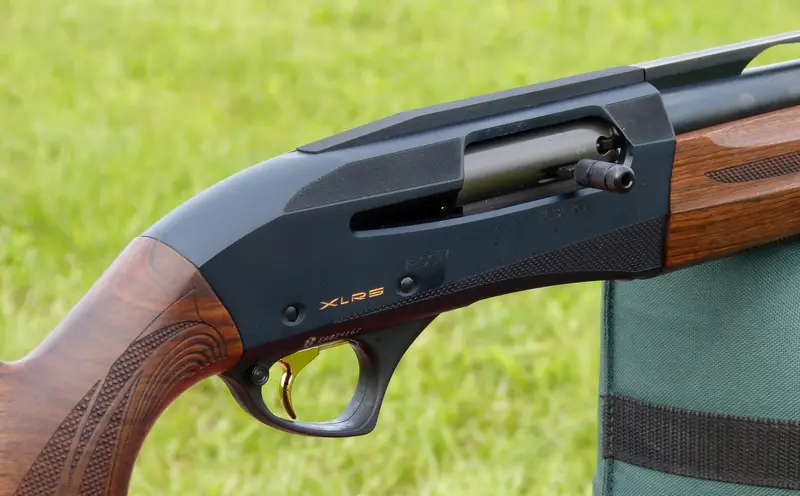
There has been quite a bit of reader mail concerning the XLR5 LR. One of the most common questions has been what it can be compared with and how light of loads it will cycle with. According to the officials at Fabarm, the Velocity is designed to be at its best with common, factory 1 oz. and 1-1/8 oz. target loads: anything from 1 oz. 1180 fps on up. Recoil with 1180 fps 1 oz. Gold Medal and 1180 fps Gold Medal Paper loads is virtually non-existent, as is the case with Xpert #7 and B & P #7 1 oz. steel loads.
Naturally, no matter what a manufacturer says we seem to have our own ideas. I have a general disdain for pipsqueak loads as they tend to be dirty, have inconsistent velocities, and I have yet to find a pattern that has 10, 20% or more "excessive" pellets in it, pellets that I just don't want. Nevertheless, the XLR runs fine with International loads as well: the 1325 fps, 7/8 oz. variety.
As far as competitive models, right now there isn't anything directly comparable as far as current production. The closest shotgun of times past would be the now-discontinued Beretta AL391 Teknys Gold Sporting, that came with 28 inch or 30 inch barrels, had an improved bolt release, and a 8.5 oz. recoil reducer fitted into the buttstock, but no adjustable comb. It carried a retail price of $2325. If you took a 391 Gold Sporting, added an aftermarket adjustable stock and added some aftermarket barrel weights, that would be about as close as you could get to an XLR5, albeit at a higher price point than the Fabarm's $2150 retail as tested.

HOW LONG IS THAT LONG RIB?
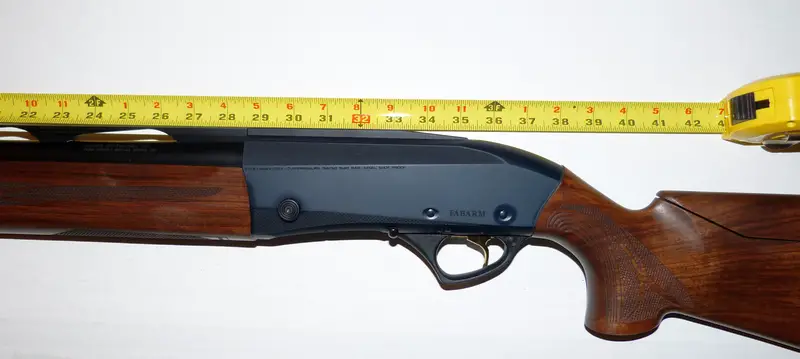
The rib on the 30 inch barrel XLR5 is over 35 inches long, at full height for approximately 33-1/2 inches. In terms of sighting plane, the 30 inch XLR5 is roughly equivalent to a 35 - 36 inch O/U.
In most autoloading and slide action shotguns, the rib is not integral with the receiver. You have several options, for example the the case of a Maxus or the new A5 the sighting plane is straight down the pipe. In a field gun like a Benelli M2 or a Vinci, there is no rib until it jumps out of the barrel quite a distance from the receiver. If you look at something like an A400 Xcel (above), you'll see a stepped rib. No rib integral with the receiver, a rib flush with the top of the receiver starts with the barreled action, then jumps up a few inches down the barrel.
The rib on the XLR5 LR is a bit over 35 inches long in its entirety. It is at full height for about 33-1/2 inches on the tested, 30 inch barreled model. Although your hard focus is on the target, the rib is closer to the eye, so what a rib does offer (consistent sighting plane / sight picture), automatic lack of canting of the gun, etc.) is intuitive with the XLR5: it is part of what makes this gun so very easy to hit with.
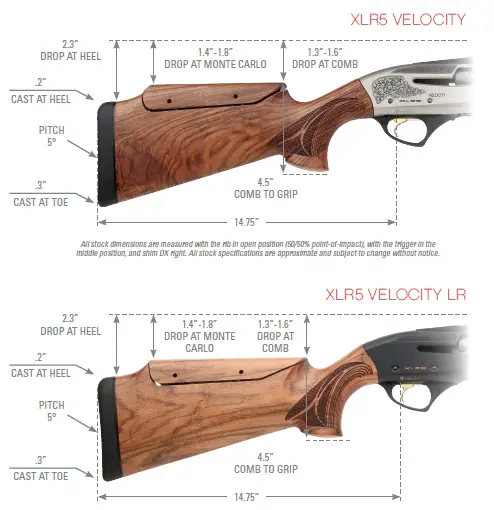
In terms of stock dimensions, there is no difference between the adjustable rib XLR5 and the XLR5 LR as of September, 2012. The current dimensions are as shown above. It comes standard with a 22mm thick recoil pad, but several factory thicknesses are available. Right now, I'm using the thinner 12mm pad for an approximately 14.36 inch length of pull. That's essentially perfect, for me, with a shooting vest on but you have several options to get what you personally prefer.
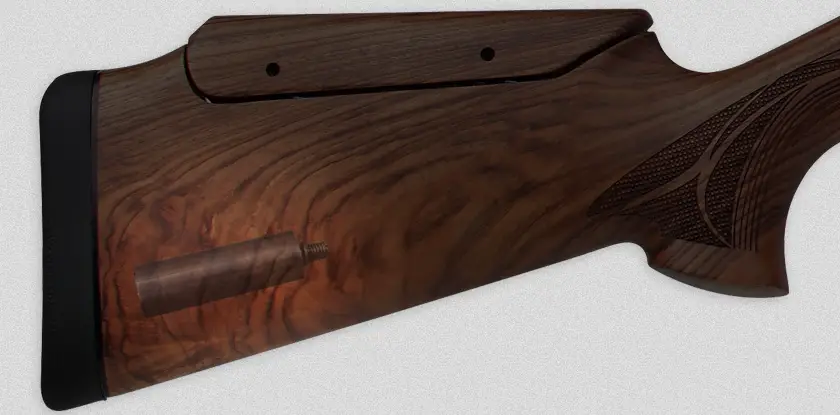
The XLR5, both models, comes with a preinstalled kinetic balancer as shown
above, that weighs 5.36 ounces. You can of course remove it if you wish,
and the three barrel weights (included) that attach instantly to the forearm
are 1.5 ounces each, so you can add 1.5, 3, or 4.5 ounces to the front
of the forearm to suit your own tastes.
HOW BIG IS THE XLR5?
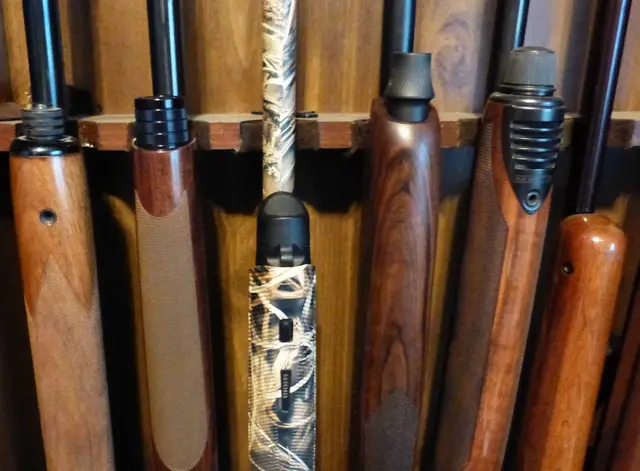
Above, a little twelve gauge autoloader forearm selection. From the left, Browning B-80, Browning A5, Benelli Vinci, Fabarm XLR5 LR, Browning Double Auto Twentyweight.
You might be surprised; at least I was. Although the XLR5 looks large, perhaps due more to the rib than anything else, it isn't nearly as big as you might think. The XLR5's forearm is a large amount thinner than the Benelli Vinci forearm to its left, and noticeably slimmer than the Beretta AL390 to its right.
Overall, there are several things remarkable about the XLR5 LR: everything is included, no optional purchases of weights, balancers, or choke tubes are needed. Unlike many competition shotguns that have just one, two, or three year warranties or no written warranties at all, you have 5 years from Fabarm USA to try to break this beast. In a market increasingly polluted with fake, plastic wood finishes, cartoonish receiver colors, and pogo-stick springy stock things, it is a breath of fresh air to finally have an autoloader built with authenticity, clean machining, honest well-figured walnut, and finish quality that speaks loudly for itself.
Copyright 2013 by Randy Wakeman. All Rights Reserved.

Custom Search

Custom Search




